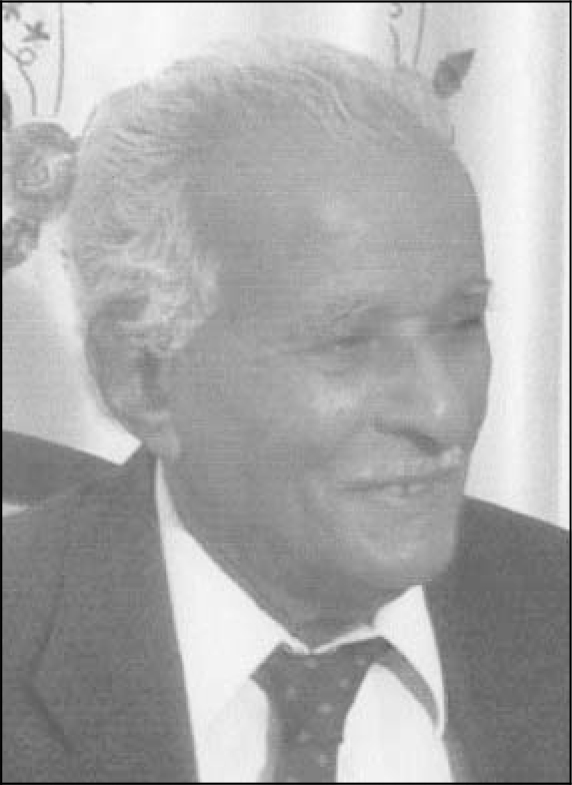The problem with legendary people is that legends grow around them and you’re never sure which are true. One story about Ken Day concerns his first visit to Northgate Hospital when he was still considering whether to apply for the post of consultant psychiatrist there. As he walked past one of the wards, a patient ran up to him, stopped, smiled at him and punched him in the face. Just at that moment, two nurses ran out of the ward and shouted to Ken ‘Don't do anything, don't say anything – he's on a behavioural programme.’ In confirming for me that this story was true, Ken commented ‘that's why I feel the way I do about behavioural psychology’. In fact, the behavioural psychologists were some of his closest colleagues, who shared the same respect so many of us had for him.

Born in 1935 in Hanwell, London, to father Arthur and mother Irene Laura née Pope, Ken was educated at Hobbayne Junior School, Middlesex, and Greenford County Grammar School. He failed his 11+ exam first time around, passing at age 13 years. He always said that he was a late learner, and that this had engendered in him a lifelong empathy towards people with delays in learning skills. This was not so much legend as true, but it did make for a good joke which I heard used about him more than once. He did his National Service with the Royal Artillery from 1954 to 1956 and after a happy time at Bristol University he went on to train in psychiatry at Bristol Medical School (1956–1961), and Newcastle. From 1961 until 1969 when he became Consultant Psychiatrist at Northgate Hospital, Ken took up a number of posts in Bristol and Newcastle. He was a house physician, house surgeon, senior house officer, registrar in psychiatry and in psychological medicine and, finally, senior registrar in psychological medicine.
Thereafter, his career took off in a life's work of commitment, service and excellence. He was appointed Senior Lecturer to Newcastle University's Department of Psychiatry in 1986, Foundation Medical Director of Northgate and Prudhoe National Health Service (NHS) Trust in 1992, retiring from clinical practice eventually in 1996. One of the most enduring legacies of his contribution to clinical practice was the planning and development of the eponymously named ‘Kenneth day unit’, an innovative medium secure unit for the assessment and treatment of offenders with intellectual disabilities.
Following his retirement from clinical practice in 1992, Ken continued as Honorary Consultant Psychiatrist, Northgate and Prudhoe NHS Trust, Honorary Clinical Lecturer, University of Newcastle upon Tyne, medical member of the mental health review tribunal, second opinion appointed doctor for the Mental Health Act Commission and worked on three independent hospital inquiry panels between 1996 and 1989. He was also a consultant advisor on service provision for people with intellectual disabilities – East Riding Health Authority, 1997–1978 and North West Regional Health Authority, 2000–2001.
Ken's posts and honours were numerous. For the Royal College of Psychiatrists he served on Council, Executive and Finance, Court of Electors and numerous other committees from 1975 to 1998. He was Chairman of the Section for the Psychiatry of Mental Handicap from 1983 to 1987; he won the Burden Gold Medal and Research Prize in 1985; he was the Blake Marsh Lecturer in 1989 and Penrose Lecturer in 1998.
He also received many honours and awards including the Winston Churchill Memorial Fellowship in 1972. He was President of the Northern Region of MENCAP 1978–1990 and a Mental Health Act Commission member 1987–1994. He was Vice-Chairman of the Mental Retardation Section, World Psychiatric Association 1989–1996; World Health Organization advisor on mental handicap to the People's Republic of China in 1991; Secretary and later Vice-President of the International Association for the Scientific Study of Intellectual Disability (1992–1996), and Vice-President (and founder member) of the European Association for Mental Health in Mental Retardation, 1993–1997.
In the Department of Health he was a member of the National Development Team 1977–1986, scientific advisor 1981–1987 and a member of mental health review tribunal from 1988 up until his death.
He published over a hundred academic papers and articles, numerous chapters and five textbooks on learning disability. But one of the achievements which won him greatest acclaim was in public education – as writer, consultant and presenter of nine television programmes on learning disability for BBC and ITV over 1977–1982, most notably perhaps his TV programmes ‘The Special Child’ for Yorkshire television.
As well as being a clinician, academic and service leader, Ken Day was also a successful artist and photographer – winning the prestigious award of Animal Portrait Category – Wildlife Photographer of the Year in 1989. His artwork was regularly shown alongside professional artists, most recently selling original work at the Contemporary Print-Making Show, the Mall Galleries, 2008.
Ken Day died on 2 July 2008. He will be greatly missed by his loving widow Ruth, his children Caroline, Paul Vincent and Matthew Charles, step-children Penny and Andrew, and his eight grandchildren to whom he was especially devoted. The family remember Ken as an athletic, fun-loving person, who was always first to lead family games – indeed as a sport, he last turned up for the Newcastle Royal Victoria Infirmary ‘Victorians’ Cricket Team as a full playing member, keeping wicket, in September 2007.



eLetters
No eLetters have been published for this article.